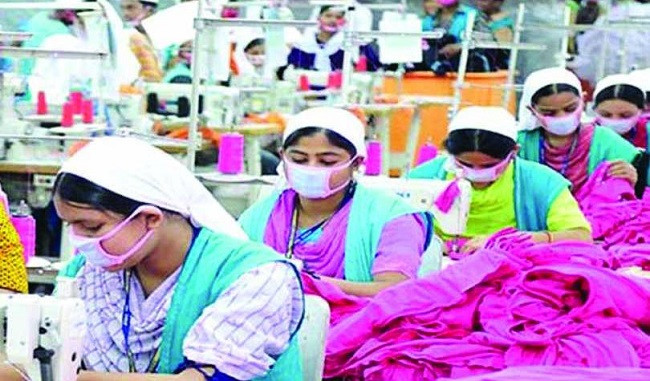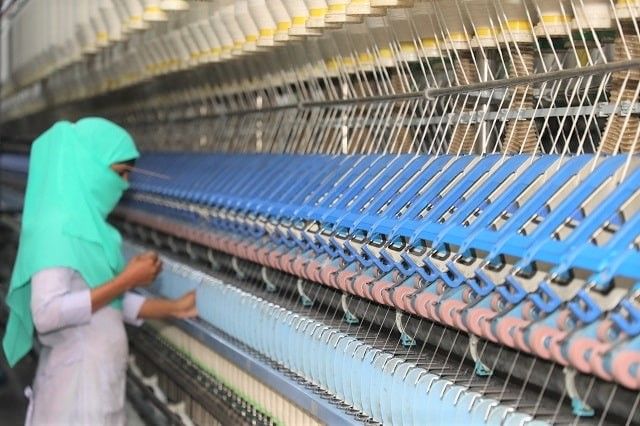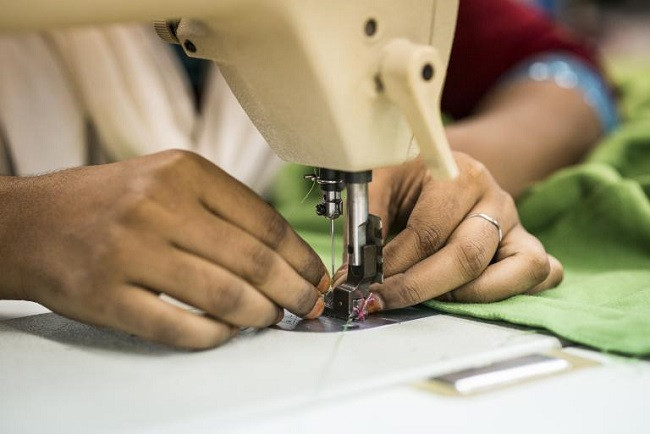Branding ‘Made in Bangladesh’ as a whole
Bags and other accessories are in high demand along with apparel in the high street and branded fashion outlets. A woman shops in a Louis Vuitton store in downtown ShanghaiReuters IANS

Ashikur Rahman
The apparel industry is the lifeline of Bangladesh’s economy. The contribution of the apparel industry in Bangladesh’s socio-economic development cannot be overstated. Apparel still accounts for around 81 per cent of the country’s total exports.
Bangladesh is now mainly producing major five cotton-based apparel items that constitutes more than 70 per cent of our total apparel export. Hence, there is no denying that we have ample scope to diversify our apparel products and export more value-added apparel mostly from manmade fiber. How? That requires a separate long article to explain. However, that not the topic of my today’s write-up.
I want to pinpoint today that Bangladesh stands on a very risky trade position. As the saying goes, ‘don’t put your all eggs in one basket’, the country’s overdependence on apparel in terms of export is not a good sign. That we felt severely during the Covid period.
Apparel accounts for around 81 per cent of the country’s total exports. In other words, Bangladesh only earns about 19 percent by exporting all other products other than the apparel. Bangladesh’s export earnings were USD 52.08 billion in the last fiscal year. Of the USD 52.08 billion, the country’s apparel shipments alone accounted for USD 43.34 billion. The home textile sector earned USD 1.62 billion, leather and leather goods earned USD 1.24 billion, while agricultural products and jute and jute goods recorded USD 1.16 billion and USD 1.12 billion shipments in the fiscal respectively. The export earnings from other sectors are really significant to mention.
If anyone travels to Europe or the US, they will observe a common type of shop on the high streets. Like the super shops in Bangladesh, those brick and mortar stores sell different products under one roof. Even the stores of apparel retailers nowadays have different shelves for leather shoes and other leather goods, textile trolley bags and other kinds of bags, jute products, home textiles, handicrafts, ceramics, household items, plastic beach toys and other kinds of plastic items, etc. We need to tap the opportunity of this new trend.
Our entrepreneurs over years have achieved the dint of salesmanship, thanks to our apparel businesses. We also have the markets ready. What we all will need to do is to present our customers products like leather shoes and other leather goods, textile trolley bags and other kinds of bag, and other products as mentioned above, alongside the apparel products. More importantly, it’s possible to manufacture some of the leather accessories, jute products, home textiles, household items on the same apparel factory floors with a little change in lines if innovation is applied.
What we all need to do is instead of promoting individual sectors, branding ‘Made in Bangladesh’ as a whole. Organising effective ‘Made in Bangladesh’ exhibitions accommodating all the thriving sectors in our export destinations could be a good idea.
The government incentives in exporting non-traditional export items could contribute to grow these potential sectors, though I don’t believe that incentive alone could make any miracle. For example, in spite the government providing 20 per cent cash incentive for the export of diversified jute products, the jute sector recorded a 2.91 per cent negative growth in the last fiscal. Once regarded as golden fibre, jute has been failing to regain its lost glory though worldwide jute bags and items made of jute are gaining popularity as sustainable products.
A little synchronization in our marketing strategy can result in a huge leap in our export growth. Undoubtedly if we harness innovation, do a holistic marketing and brand ‘Made in Bangladesh’ as a whole, the non-traditional products can fill our export basket full of wonders. This will not only increase our total export earnings manifold, but also strengthen our economy. This is all the more important especially at a time when Bangladesh is on the verge of graduating from an LDC to a middle-income country.
Ashikur Rahman (Tuhin) is the Managing Director of TAD Group and a former Director of Bangladesh Garment Manufacturers & Exporters Association (BGMEA)

























